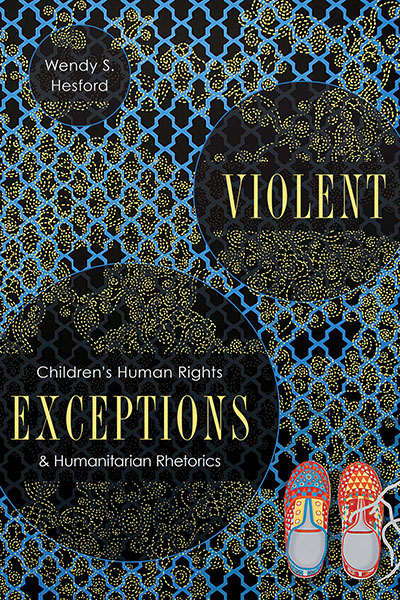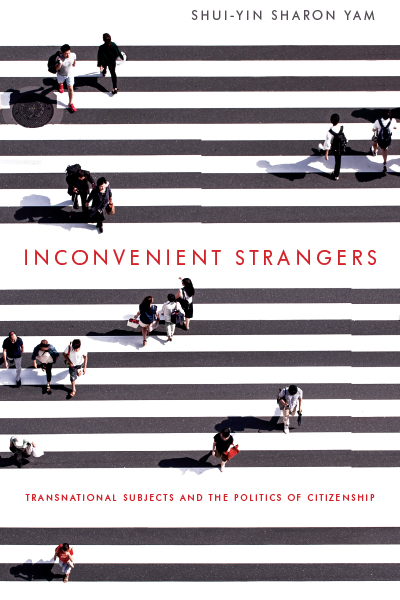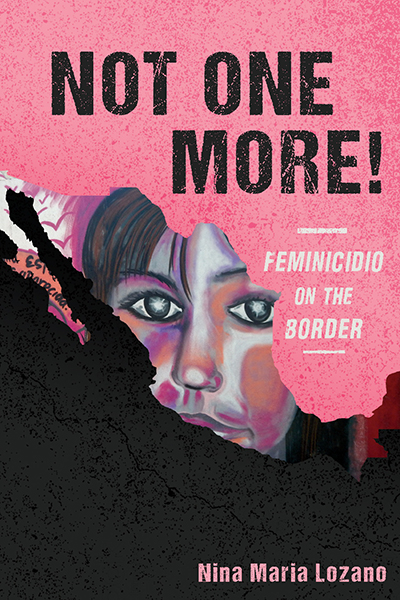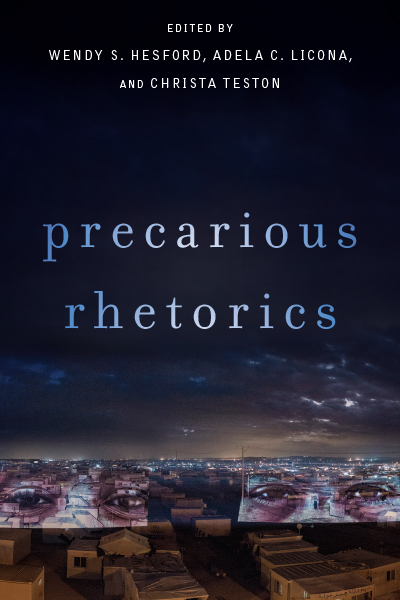This book is freely available in an open access edition in the OSU Libraries' Institutional repository, Knowledge Bank, thanks to TOME (Toward an Open Monograph Ecosystem)—a collaboration of the Association of American Universities, the Association of University Presses, and the Association of Research Libraries—and the generous support of The Ohio State University Libraries. Learn more at the TOME website, which can be found at the following web address: http://openmonographs.org.
Listen to Wendy S. Hesford interviewed on New Books Network.
“Now more than ever, the rhetorical and political work shown in Violent Exceptions is crucial in understanding how we, not just as scholars but as community members, are succumbing to notions that tell us who is deserving of our empathy and compassion, and who is not. Hesford’s work will diversify not just the study of immigration rhetoric and rhetorics of race, but will also pave the way for this novel field of study: children’s human rights rhetoric.” —Joselyne Tellez, Constellations
“Hesford’s case studies of ‘exceptional’ children-in-peril in war zones, as victims of terrorism, and as complex figures in US gendered and racialized politics offer an extensive examination of the material-rhetorical methodologies and rhetorics of violent exception that underscore human rights and humanitarian logics. Violent Exceptions also justifies the vital need for deeper examination of the challenges that non-agentic and non-individualized subjects of rights pose to the human rights regime.” —Belinda Walzer, Rhetoric Review
“Violent Exceptions will likely interest scholars from different fields in different ways. Those working within rhetorical studies specifically, and feminist, decolonial, disability, materialist, and posthuman theory more broadly, will find Hesford helpful in thinking through new approaches to understanding dynamic intersections of materiality, history, ideology, and representation. Those focusing specifically on children’s human rights will appreciate her close attention to the political divide between support for the CRC and its optional protocols as well as to the ‘diffractive’ interpretations of her case studies.” —Alexandra S. Moore, Human Rights Quarterly
“This book is compelling and comprehensive—rigorous and also politically powerful. It offers new insights into humanitarianism and critical human rights literatures and will be of interest to scholars in this area as well as media and cultural studies, communication and rhetoric, and women, gender, and sexuality studies.” —Julietta Hua, author of Trafficking Women’s Human Rights
“Violent Exceptions offers a theoretically sophisticated approach to a heavily deployed, and tragically misunderstood, figure: the innocent child subjected to violence. At a historical moment in which the US is publicly—and tragically—reorienting its own approach to the allegedly universal appeal of childhood innocence, this book is especially timely and desperately needed.” —Anna Mae Duane, author of Suffering Childhood in Early America: Violence, Race, and the Making of the Child Victim
Violent Exceptions turns to the humanitarian figure of the child-in-peril in twenty-first-century political discourse to better understand how this figure is appropriated by political constituencies for purposes rarely to do with the needs of children at risk. Wendy S. Hesford shows how the figure of the child-in-peril is predicated on racial division, which, she argues, is central to both conservative and liberal logics, especially at times of crisis when politicians leverage humanitarian storytelling as a political weapon. Through iconic images and stories of child migrants, child refugees, undocumented children, child soldiers, and children who are victims of war, terrorism, and state violence, Violent Exceptions illustrates how humanitarian rhetoric turns public attention away from systemic violations against children’s human rights and reframes this violence as exceptional—erasing more gradual forms of violence and minimizing human rights potential to counteract these violations and the precarious conditions from which they arise.
Wendy S. Hesford is Professor of English and Faculty Director of the Global Arts and Humanities Discovery Theme at The Ohio State University. She is an Ohio Eminent Scholar and the author, most recently, of Spectacular Rhetorics: Human Rights Visions, Recognitions, Feminisms.
Contents
Preface Handprints and Humanitarian Violence at the Border
Acknowledgments
Introduction Children’s Rights and Humanitarian Rationalities
Chapter 1 “No Tears Here”: Humanitarian Recognition, Liminality, and the Child Refugee
Chapter 2 Trafficking Global Girlhoods, Terrorism, and Humanitarian Celebrity
Chapter 3 Humanitarian Futures: Disability Exceptionalism and African Child Soldier Narratives
Chapter 4 Humanitarian Negations: Black Childhoods and US Carceral Systems
Chapter 5 Queer Optics: Humanitarian Thresholds and Transgender Children’s Rights
Coda “Walls as We See Them”
Notes
Bibliography
Index





